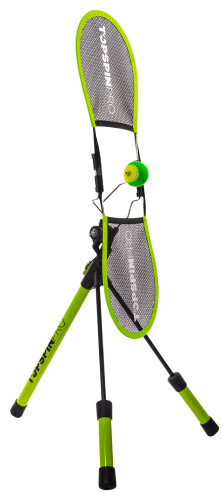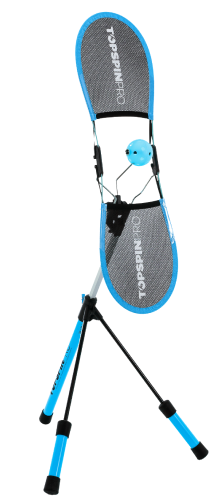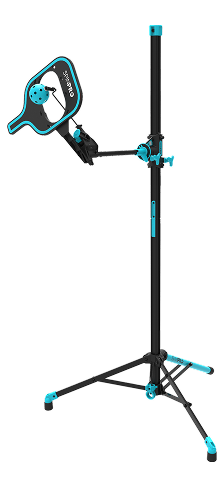When it comes to improving your game, there's an ongoing debate in the pickleball community: Should you drill regularly, or just play more games? Some players live by their drills practice, while others believe playing alone is enough to sharpen their skills. So, what’s the right answer?
Let’s take an in-depth look.
Why Drilling Is Essential to Improve Your Pickleball Game
What Is Drilling?
Drilling is the focused, repetitive practice of specific shots or scenarios. It’s how athletes in every sport fine-tune their mechanics, build muscle memory, and gain confidence in execution. A drilling session can be focused on a specific shot or a variety. It can also be based around tactical improvement.
Top Benefits of Pickleball Drills
Volume of Balls Hit
The most obvious difference between drilling and playing is the volume of balls hit. In 30 minutes of drilling, you can get more quality reps than a full game provides. This enables you to really focus in on improving a certain technique or scenario that perhaps needs more work by hitting a lot of shots.
Targeted Practice
Targeted practice helps isolate weaknesses and turn them into strengths much faster than casual play. You can set up repetitive scenarios or shots to help improve muscle memory.
Confidence Building
Knowing you've drilled a shot thousands of times makes it easier to trust under pressure. This helps you stay relaxed and commit to the shot during a competitive game in a situation where you may have previously panicked.
Best Types of Pickleball Drills: Home, Wall, and On-Court Practice
To get the most from your practice time, it helps to mix up your drilling type based on what’s available to you. If you have limited time it can help to have some drill options up your sleeve for at home practice.
At-Home Drills
Use tools like the TopspinPro or SpinPro to work on topspin mechanics, paddle control, and contact point without needing a court.
Mirror or shadow swings in front of a mirror to help reinforce proper technique. And if you have a wall, use that to work on some skills (see below).
Here's an in-depth guide to practicing at home "At Home Practice guide"
See the video below for an example of practicing the Slice Serve on the SpinPro:

Wall Drills
Perfect for solo practice when court space or partners are unavailable. Practice volleys, dinks, or groundstrokes by hitting against a wall and controlling the rebound. Helps develop timing, quick reflexes, and consistency under pressure.
Here's an in-depth guide to wall drills: "Pickleball Wall Drills"
On-Court Drills
Ideal for full-shot development, footwork, and situational patterns. Can be done with a partner or coach or ball machine, using feeding drills or live-ball scenarios. Great for focusing on specific shots like third shot drops, resets, and fast hands at the net.
Mixing these types of drills keeps practice fun, varied, and effective no matter where you are.
Below are some warm up sequences for both solo wall drilling and partner drilling:

Drilling with the TopspinPro and SpinPro
Tools like the TopspinPro and SpinPro are game-changers for solo practice. The TopspinPro is ideal for learning and reinforcing topspin mechanics for both forehands and backhands, helping players develop the correct low-to-high swing path and optimal contact point. The SpinPro adds the ability to practice slice and multiple angles.
With these tools, you can repeat high-quality reps without needing a partner or court. They're especially effective for warming up, refining technique, or developing spin-based shots like topspin serves, drives, dinks, and drops.

Why Playing Matches Is Essential To Improving Your Pickleball Game
Playing games and matches is, after all, the fun part. It exposes you to real-time decision-making, unpredictability, and different playing styles. It also brings with it match play pressure which can wobble the strongest of players.
Top Benefits of Playing
Game Feedback
Playing gives real time feedback on the effectiveness of certain shots and strategies. Something might look really strong on the practice court but when under the pressure of matchplay can be very different.
Mental and Game IQ Development
Experience in real matches teaches strategy, shot selection, and court awareness. You learn about yourself as a player and also about how to pressure opponents. Playing also helps you mentally develop and learn to deal with the highs and lows of pickleball.
Socialization
Playing games helps build community, and keep motivation high. It's also a great way to get other people to provide extra feedback on your game.
The Best Pickleball Practice Routine: Combining Drills and Games
While both approaches have value, the truth lies in balance. Drilling builds the foundation; playing puts it into action. A goal would be 50/50 play and drilling and to try not to get too one sided:
Use drilling to sharpen your technique (e.g., third shot drops, backhand dinks, volleys) and strategy. Incorporate some practice points into those drilling sessions if with a partner to further develop your skills inder a little more pressure. Mix in drill-based games or cooperative rallies to further bridge the gap.
Play games to develop situational awareness and decision-making. Playing time is also well used for mental development. Use that time for practicing focus and emotional control.
Conclusion
To drill or not to drill, that is the question! If you’re serious about improving, the answer is clear: do both. Drilling gives you the skills; playing shows you how and when to use them. Balance the two, and your pickleball game will thank you.
So next time you hit the court, don’t just play. Pick up a paddle, set a timer, and drill with purpose. Your future self will be glad you did.
Enjoyed this article?
Be sure to sign up for our newsletter and we'll keep you up to date about new posts



